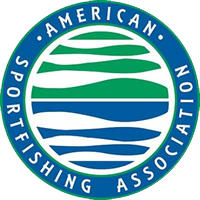The Winnemem Wintu Tribe, the California Department of Fish and Wildlife (CDFW), the National Oceanic and Atmospheric Administration (NOAA) Fisheries and the U.S. Fish and Wildlife Service (USFWS) on Monday celebrated the return of endangered winter-run Chinook salmon eggs to the McCloud River upstream of Shasta Reservoir for the first time since the construction of the Shasta Dam in the 1940s.
The partners collected approximately 20,000 fertilized winter-run Chinook salmon eggs from USFWS’ Livingston Stone National Fish Hatchery near Redding and drove them more than three hours over 80 miles to the Ah-Di-Na Campground within the Shasta-Trinity National Forest on the banks of the McCloud River. The eggs were placed into specialized incubators alongside the McCloud River’s cold waters where the species once spawned. Another 20,000 eggs will be transferred to the incubators in the McCloud River in early August. Both cohorts will be released into the river as fry.
The historic return of winter-run Chinook salmon eggs to the mountains upstream of Shasta Reservoir is in urgent response to reduce the extinction risk during a third year of severe drought. It is not a species reintroduction program. The drought action, however, is expected to inform future long-term recovery and reintroduction efforts as biologists learn how the species uses its historical habitat. Once the eggs hatch later this summer, salmon fry will swim into the McCloud River for the first time since construction of Shasta Dam in the 1940s blocked the migration of adult salmon back to these same mountain waters. Rotary screw traps in the river will collect the salmon fry, which will then be transported downstream of Shasta Dam and released to the Sacramento River to migrate to the Pacific Ocean.
The return of winter-run Chinook salmon eggs to the McCloud River was accompanied by a tribal celebration by the Winnemem Wintu, which has long advocated for the return of salmon to their ancestral homeland. Staff from CDFW and tribal representatives will camp alongside the incubators and monitor the eggs and the young salmon as they develop and disperse into the river over the next few months.
“We are asking that the river receive these eggs. We are asking that the old-time ways continue and that they grow in that way,” said Winnemem Wintu Chief and Spiritual Leader Caleen Sisk in explaining the native words, songs and ceremony immediately preceding the eggs’ return to the McCloud River. “We put down that song so they have a fighting chance.”
CDFW Director Charlton H. Bonham said, “While we have carried out a number of different actions to see this iconic species through another year of drought, there’s no denying that Monday’s work just feels huge. It’s historic and healing and incredibly hopeful for the future. We are so grateful for the wisdom and guidance the Winnemem Wintu Tribe provided about their ancestral lands and waters, which helped shape this effort. We’re proud to help deliver these eggs and this species home to the McCloud River.”
Scott Rumsey, acting regional administrator for NOAA Fisheries’ West Coast Region, said, “Given the drought and the harsh reality of climate change, these endangered fish face the longest odds they ever have. The Winnemem Wintu Tribe has long sought to return them to the McCloud. This crucial collaboration with the tribe, state, and other agencies, now reflects more support for the species than ever before and is finally taking an important step toward making that happen.”
Paul Souza, regional director of the USFWS’ Pacific Southwest Region, said, “We know the impacts of drought can have devastating impacts on some of our most precious aquatic species, but it is heartening to know that when we come together with our partners, we are capable of quickly accomplishing lifesaving measures like this for winter-run Chinook. We are proud to work with such dedicated federal, state and tribal partners to help safeguard this endangered fish against drought through the implementation of creative solutions.”










